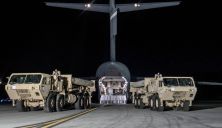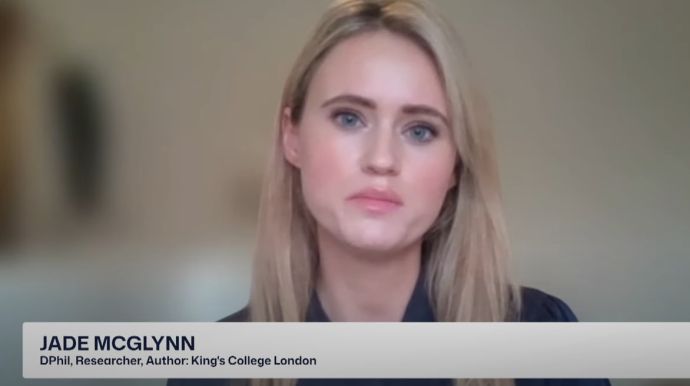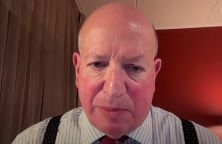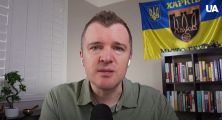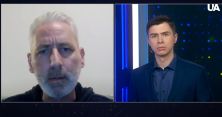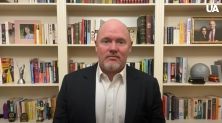British researcher, lecturer, linguist, historian, a spectacular author specialising in modern Eastern Europe, particularly Russia under Vladimir Putin’s dictatorship doctor in philosophy by Oxford University – Dr. Jade Mc.Glynn in UATV English studio.
— In 2020, you obtained your Doctor of Philosophy at Oxford for your dissertation, Reliving the Past: How the Russian Government and Media Use History to Frame the Present. How exactly do they do it?
— They have a variety of methods, but a very common one is the use of historical analogies. They consistently frame the past as if it’s under threat. For example, I don’t need to explain to Ukrainians the way that, at the very highest levels of the Kremlin, there have been efforts—like the 2021 National Security Strategy or Putin’s infamous essay on the “historical unity” of Russians and Ukrainians—to present the past as something that needs to be protected, as if there’s only one truth.
Of course, it’s the Russian version of the truth in their minds, and they see it as being under deep threat, which creates an existential problem for Russians. So, there’s this constant invocation of history and historical narratives that need defending, even militarily, though these narratives are largely myths.
— Propaganda, in other words?
— Yes, propaganda is a perfect way of putting it.
— Alright, let me transition to another question. Can we say that North Korea’s involvement in Ukraine is Putin’s way of provoking the West? And has this provocation gone well, given that the West seems too timid or too slow to respond decisively?
— I almost wouldn’t even call it provocation; it’s more like laughing in the West’s face. The West, as you said, is either too timid or too slow—or probably both—to understand what’s happening. But I also think it’s the result of Russian propaganda targeting the West.
They constantly repeat that Russia could use nuclear weapons if, for example, Ukraine were allowed to use Storm Shadow missiles. Russia treats the West with sheer mockery, making threats of escalation while, of course, sending thousands of North Korean troops is apparently not an escalation.
— Speaking of escalation, Russians are reportedly using the occupied Zaporizhzhia nuclear power plant to deploy more military personnel, ammunition, and explosives. That’s concerning, to put it mildly. What do you think we can expect?
— Interestingly, I was in Zaporizhzhia about two weeks ago. It was a quiet day, but I was there to discuss what’s happening in the occupied areas of the Zaporizhzhia region, speaking with experts and locals about the resistance. Around this time, there was also an increase in aerial bombs targeting the city of Zaporizhzhia.
Many in the West speculated that Russia would launch a new offensive there, but it seems they’re struggling, partly because Russian soldiers are tiring of being forced into “meat waves”—a term for human waves in English. This is why bringing in North Korean soldiers could make a difference. Russia is reverting to its traditional attrition warfare, just throwing men at the problem. Anyone looking at a map can see how tough this will be for Ukrainians.
— Given this war of attrition, do you personally believe that Ukraine will be invited to NATO in, say, three years?
— I honestly don’t know. I think Ukraine should have already been invited.
If NATO had resolved this sooner, there’s a good chance this large-scale war might not have started.
But in terms of what happens now, it’s difficult to predict. A NATO invitation depends on U.S. support, which isn’t there right now. And it’s uncertain if that will change with either of the current U.S. presidential candidates. So, the problem is largely in America.
There are other options, such as the Joint Expeditionary Force, which is a kind of NATO subset, but I think realistically, the direction the U.S. takes will heavily influence Ukraine’s future with NATO. The results of next week’s elections will give us a clearer idea, but both Ukraine and Europe may be facing a post-NATO reality as we knew it.
— Last question: if Putin were to die tomorrow—amen to that—do you think Russian politics, or “Russian ways,” would change significantly?
— No, I don’t think there would be significant change. The best hope would be a shift to a more technocratic leader. But the most likely threat to Putin has come from the extreme nationalist wing, not the so-called liberal opposition or dissidents.
If there’s any future political movement, it will likely come from this nationalist faction, as they have the elite support necessary in any regime transition. So, unfortunately, any change would more likely be for the worse than for the better. I wish I had a different answer.
Read also: Olaf Sholz And His Party “Betrayed Ukraine”. Interview with Serhii Sumlenny
